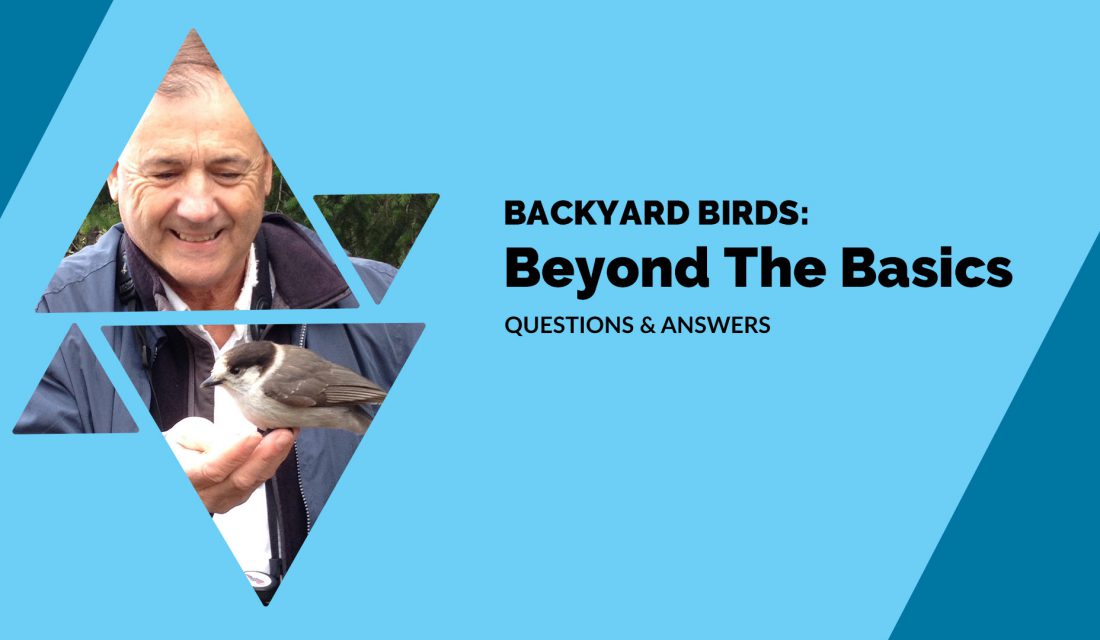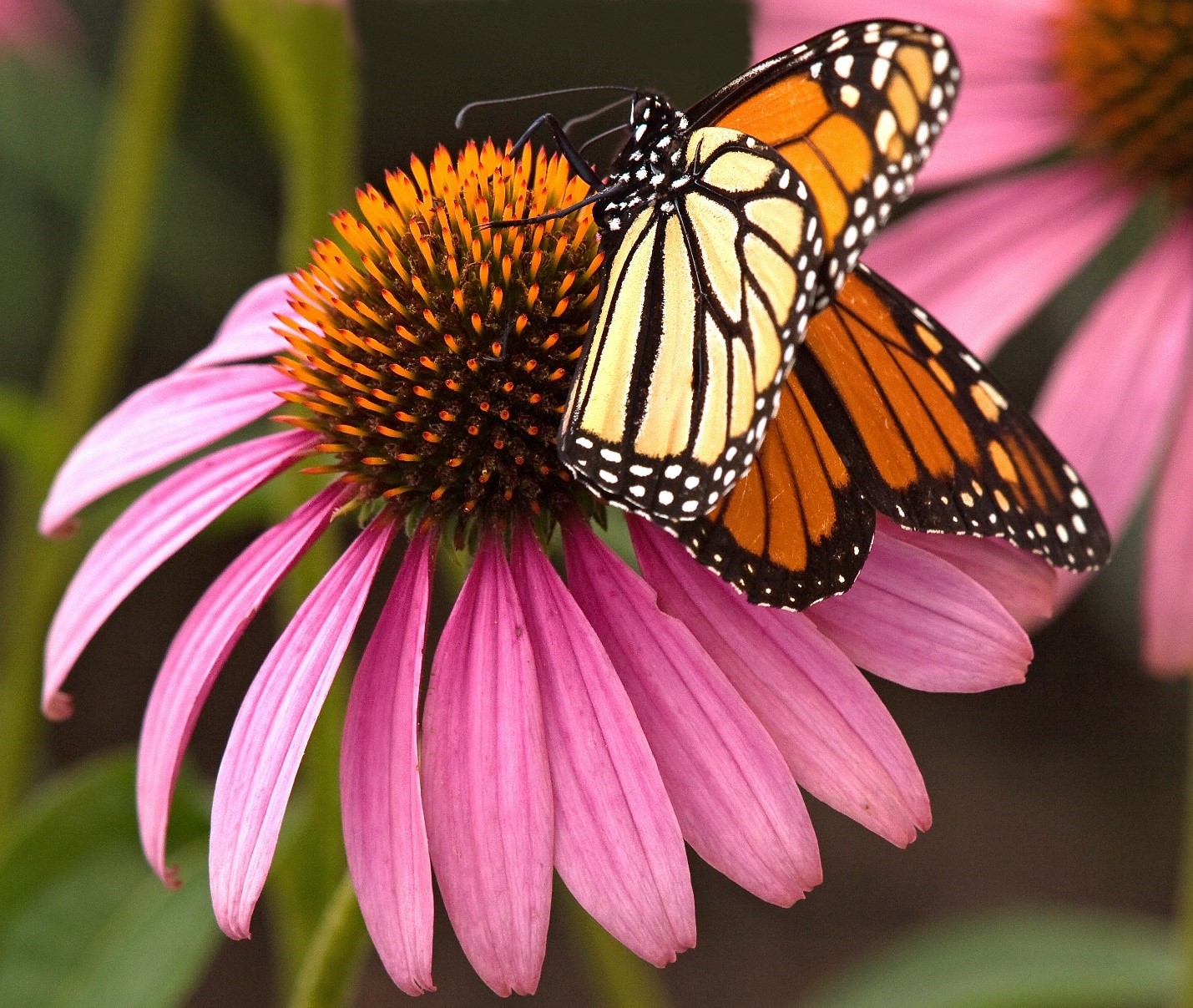Thanks to COVID-19, the number of folks deriving pleasure from the birds in their yards has increased exponentially.
Not only are these backyard birders watching their feathered neighbours, they also have a lot of questions about them.
Where do birds sleep at night? How do they deal with extreme cold? How do you stop birds from hitting windows or woodpeckers from damaging your home? Should you provide bath water in the winter? What should you do if you find a baby bird? Should you offer peanut butter? What things can you add to suet?
So many questions!
But we’re in luck. The Canadian Wildlife Federation was fortunate enough in May 2021 to host David Bird, PhD, in a one-hour public webinar. Avian expert David Bird has at least three decades of experience in teaching ornithology, feeding birds, writing and lecturing on backyard bird biology and challenges. Participants enjoyed a visual presentation as Dr. Bird provided answers to these thought-provoking questions and many more.
Did You Miss the Webinar?

Sadly, we were not allowed to record the webinar. But Dr. Bird very kindly offered to answer many of your questions we could not get to during the timeframe of the webinar.
Take a gander:
Q: How would you recommend we clean our bird feeders?
Bird: Take it apart and use a dishwasher on a hot setting. Or hand-wash either with soap and boiling water or with a diluted bleach solution (no more than 1 part bleach to 9 parts water). Rinse thoroughly and allow to dry before refilling.
Q: I mix my own food, using black oil and striped sunflower seeds, safflower and cracked corn. Is there anything else I could or should add to the mix that’s readily available in bulk supply?
Bird: You could add some sunflower hearts or peanut kernels. Personally, I would drop the cracked corn unless you do not mind House Sparrows, grackles and possibly even pigeons. But if you are not worried about these birds, consider adding some white millet.
Q: If I were to make my own suet, would meal worms be a good addition?
Bird: Why no?t! You can buy dried meal worms.
Q: There is annual mosquito spraying in my area. Isn’t killing mosquitos reducing food for birds?
Bird: Any program that kills mosquitoes is reducing the food supply for birds. Perhaps bird-lovers could attend a town meeting and vent their opposition to the program? I have no idea what they are spraying, but I would want to know. Some pesticides are also harmful to humans.
Q: I’m trying to essentially create an ecosystem in my backyard. Is it really that terrible if wild predators come to my yard to fulfill the ecosystem? I’m not speaking of outdoor neighbourhood cats!
Bird: Go for it! Anyone who likes birds of prey is a friend of mine. On the other hand, if you are attracting raccoons, foxes, coyotes, cougars or bears, your neighbours might mind!
Q: Should we feed suet to birds in the summer or only in winter?
Bird: I offer suet all summer, but I use the rendered commercial kind that does not melt in the sun. Also, I offer it in the shade only.
Q: Bird feed also attracts mice and rodents and eventually they get into the house. Is there a way to continue to feed birds but keep the rodents away?
Bird: Whether one feeds birds or not, mice will always try to enter buildings to accomplish two things: getting out of the cold weather and looking for food sources. Finding mice inside one’s domicile is not a good thing. I do not think that halting your feeding will stop mice from entering your house.
With this in mind, I would do the following when it comes to offering bird-seed:
- Make absolutely sure that your feeders cannot be accessed by mice by hanging them or putting them on poles with baffles to keep the mice from climbing up.
- It is always a good idea to make sure that your feeders have seed trays installed on them to prevent seed from falling on the ground.
- Consider offering only sunflower chips so that no hulls fall to the ground. Think about using my favourite Squirrel Buster feeder, the one that offers shelled mixed nuts. Not only do the nuts attract lots of birds, they stay on the feeder longer, the nuts last longer, and there is no mess below the feeder.
- Sweep the area below the feeders often to remove debris tasty to mice and keep the lawn cut short to prevent the mice from hiding in long grass.
- Store your seed in a mouse-proof container. I used a galvanized garbage can with a tight lid and I place a heavy rock on it to keep out the raccoons.
Q: Shouldn’t there be public education on light pollution and migrating birds?
Bird: I could not agree more. I try to write and talk about it whenever I can. Check out the Fatal Light Attraction Program online.
Q: Is it recommended to use diatomaceous earth in a Chickadee nesting box?
Bird: Diatomaceous earth is practically non-toxic to fish and aquatic invertebrates. It is commonly encountered by birds and other wildlife, and it’s not known to be harmful. However, no toxicity evaluations for wildlife have been done to my knowledge. Diatomaceous earth kills a variety of crawling insects including bed bugs, fleas, roaches, ants and earwigs. Food-grade diatomaceous earth is apparently safe and can be ingested by animals and humans. The diatomaceous earth, microscopically, acts like tiny shards of glass and breaks up the exoskeleton of bugs, which dehydrates them and causes them to die.
Q: Any advice or concerns about concrete bird baths, including algae growth?
Bird: They are actually my favourite bird bath! I suppose that algae does grow in them, but the idea is to occasionally scrub out your bird bath with a brush and rinse with a hose.
Q: Our yard is totally monopolized by House Sparrows. What’s the best way to deter them?
Bird: It could be as simple as a food change. The best way to discourage them from feeders is to offer the right foods. Cracked corn, wheat, oats, millet and most mixed seed offerings are a definite no-no. Your best food offerings are safflower seeds, nyjer (or thistleseed), suet, peanuts and mixed nuts. If you wish to continue to offer sunflower seeds, do it in a feeder design that sways in the wind, as sparrows are more likely to get spooked by a moving feeder.
Keep in mind that House Sparrows like to feed on the ground or on platform feeders, so keep spilled seed to a minimum. Perches shorter than 1.6 centimetres also help prevent House Sparrows from perching on feeders. Adding rocks to your bird bath to break up bathing spots and getting rid of any dusty, gravelly areas where House Sparrows like to dust-bathe might help. You can also discourage the little devils from breeding and roosting in your yard by eliminating any potential nesting cavities or wall ivy, and keeping garage and shed doors closed when not in use. Finally, harassing the sparrows in their roosting spots in the evening just after they perch sleep for the night may also force them to seek safer locations elsewhere.
Q: I was told it helps to keep your windows a little dirty, especially during nesting time. What do you think? Is it best to clean windows later, say, in summer?
Bird: I am assuming that you are thinking that the dirty windows might be more easily seen by distracted young fledglings. Anything that lessens the chance of a bird striking your windows is a good thing. You do not necessarily have to suffer dirty windows to save birds. A more permanent solution entails adding strips of bird-friendly adhesive tape about 10 centimetres apart.





2 comments
Should there be regulations that would only permit tree cutting and hedge trimming after the nesting period. September and October? How many nests are destroyed in this manner?
While we don’t have information on how many nests are destroyed, here is a link that talks about existing regulations that you may find helpful: https://www.canada.ca/en/environment-climate-change/services/migratory-bird-permits/faq-migratory-birds-regulations-2022.html